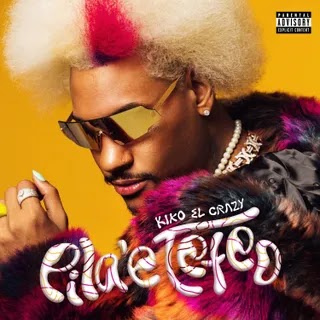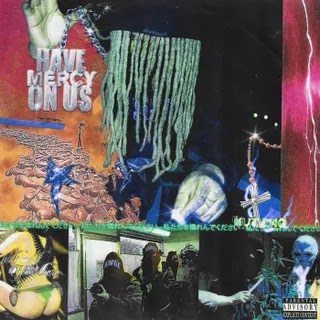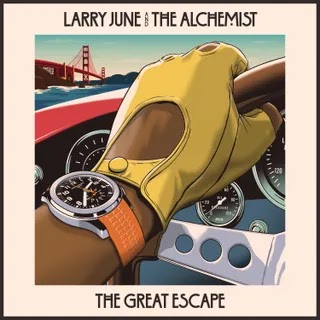The Dominican craftsman's tremendous second collection runs dangerously fast and succeeds at two of the components that make dembow so powerful: snares and humor.
You could be conciliatory and call Kiko el Insane an impact, or you could cut the horse crap: The man fathered large numbers of the patterns that your #1 Spanish-talking pop star is right now getting for style and clout. Everybody from Terrible Rabbit to Rosalía has inspected him or summoned a portion of his dialect, wanting to imitate only a tad piece of his Dominican dembow sorcery. Take "Saoko," on which Rosalía says "la pámpara" — a now-universal self-mythologizing expression that Kiko developed. Or on the other hand consider the (moral?) non-monogamy banger "Titi Me Preguntó," which tests a similar motto and Kiko's deranged chuckling. A quick survey of the Board Latin outlines throughout the past year will exhibit that dembow is the business' new most loved toy — and that Kiko has been one of its essential emissaries.
The craftsman conceived Jose Alberto Rojas Peralta has been making music beginning around 2009, however he broke out of el bajo mundo, or the dembow underground, around 2019, showing up in the public eye with hot pink hair, neon dribble, and bald felines — an amazing panache distant from the jewel hard strength of numerous dembowseros at that point. He got fire from homophobes for wearing skirts, painting his nails, and voicing support for eccentric networks — decisions that he says made a few specialists deny coordinated efforts with him, even as his tunes were established solidly in the topical domain of dembow's (frequently hypermasculine) fixation on sex and celebrating.
However, his introduction, 2022's Llegó El Domi, was defaced by mediocre pop snares and silly EDM construct ups; it was an undeniable offered to relax dembow for pop crowds. For Pila'e Teteo, his subsequent collection, Kiko appears to have flipped a switch. Like the shock of a defibrillator conveyed to an arrhythmic heart, it resuscitates the nonchalant eccentricity that made Kiko so attractive in any case.
Pila'e Teteo succeeds at two of the components that make dembow so compelling: snares and humor. Kiko's mystique details are pushed to the limit here: On "Pichirry," he enrolls El Alfa to flip the Dominican expression for chicken interrupt an illustration about a lady's butt. On "Loca y Linda," he wanders off in fantasy land about somebody as "insane and pretty" as the YouTuber and powerhouse Lele Pons. The Heavenly messenger Dior-including "Dad' Ti Ya" changes an articulation about being down for somebody into a connect about stacking on pills (at a certain point, Dior boasts about taking molly that sends him to Jupiter). Any dembowsero can rap about getting laid or turning up, however the capacity to employ wit, similitude, and likeness in sound into laugh uncontrollably minutes is a gift, and a piece of what makes Kiko so remarkable.
Kiko will be unable to shape his voice into childish chatters or quavering howls like El Alfa, yet he actually has great vocal control. You can basically give him any beat and he'll figure out how to squeeze his voice into its shapes. Over the ragga bob of "Dad Que Baile," Kiko turns his vocals into jungle gym insults and dancefloor orders. On "Te Puede Llena" and "Tu Va Dobla," maker Imperio constructs a labyrinth that Kiko effectively tackles: Layers of handclaps, hacked vocal circles, and Breaking point riddims get over and under one another, Kiko turning each corner with easy brio. "Saco e' Sal" is blood and gore flick dembow, with Kiko rapping so quick, it nearly feels like he realizes he'll be quick to wind up dead off.
Pila'e Teteo lands like a difficult HIIT exercise; with 15 melodies running above and beyond 100 BPM — and most under the three-minute imprint — you are probably going to gasp by collection's end. The speed is very fast, however seldom do Kiko and his visitors battle to keep up — all things considered, the speed is an inspiration, pushing everybody staying put the course or hazard becoming mixed up in the haze. Dembow is a cooperative, singles-based type, however Pila'e Teteo makes it a stride further; this is a setup exhibiting class sluggers at various times. There are appearances from veterans like El Alfa, Chimbala, and some way or another, the late Monkey Dark; as well as productive youthful weapons Stream 28, Heavenly messenger Dior, and Braulio Fogón. The highlights are normally consistent supplements to Kiko's style, as on "Con una Casa en el Cuello" and "Saco e' Sal." In different minutes, as on "Dad' Ti Ya," his imaginative accomplices dominate him. Kiko moving to one side occasionally isn't really an inconvenience. All the more in this way, it confirms his status as a specialist guardian: the man has gathered his friends and followers for the teteo of the hundred years.
At the point when it returns to languid, retrograde sayings, Pila'e Teteo doesn't satisfy its commitment. "Haitiana" repeats cringey racial fantasies about Haitians, African-Americans, and obscurity, while on "Rapa Un Cuero," Kiko gloats about engaging in sexual relations without a condom. Furthermore, despite the fact that craftsmen like Yailin La Mas Viral, Gailen La Moyeta, Tokischa, and La Perversa are important for a monstrous renaissance for ladies in dembow, Pila'e Teteo includes not a single one of them. As a matter of fact, it includes no Dominican ladies by any means; the Andalusian rapper Mala Rodríguez is the main lady to show up across every one of the 15 tracks, and keeping in mind that her refrain on "Saco e' Sal" tears, the decision to highlight somebody from Spain as opposed to the People of color who are quite of the development is a mistake.
Pila'e Teteo shows up at a definitive second for dembow. Long scorned by the tip top as excessively unrefined, excessively Dark, and excessively low-class — a boundary to section that has hindered the class' invasion into the standard Latin music industry — it at last appears to be that the world has gotten on the development's power. Cynics frequently credited that battle to an issue of vernacular, guaranteeing that Dominican dembow specialists depended too intensely on hyperlocal shoptalk, which made their melodies less tasteful for a more extensive Spanish-talking crowd.
Amusingly, that exploratory commitment with language is important for what has drawn stars like Terrible Rabbit and Rosalía to the music. Whether it's through ribbing exchange, knowing insinuation, or onomatopoeic cavorts, dembow craftsmen have changed Spanish into a phonetic jungle gym, one that every one of the new children need to skip in. As the Dominican pundit Jennifer Mota has composed, the world might vilify the manner in which we communicate in the colonizer's language as "ill-advised." However in their phonetic trick, dembow specialists are likewise neglecting over 500 years of syntactic ensnarement and provincial fuckery.
Pila'e Teteo fabricates a discipline of disobedience. With his innovative way to deal with language and weird style, Kiko has shepherded a continually changing type into freakier, more energetic bearings. Pila'e Teteo is certainly not a mixture pop endeavor at a hybrid crowd or a watered-down rendition for the unenlightened; it is dembow in its rawest structure. It is the sound of La 42, of Dyckman, of Cristo Rey — the music that blasts out of corner colmados and custom soundsystems, embarrassing your mom and incensing gentrifiers. Allow them to remain distraught.















0 comments:
Post a Comment